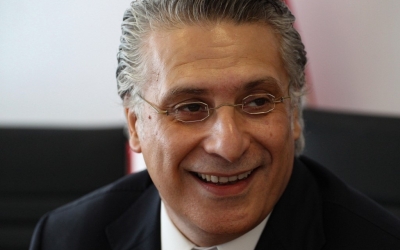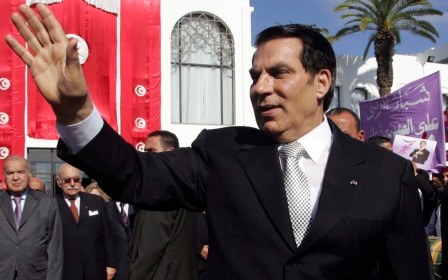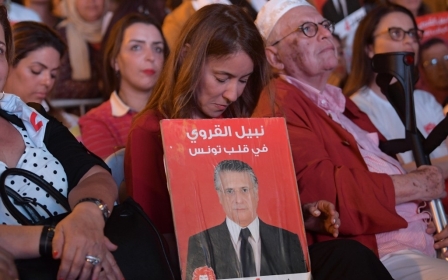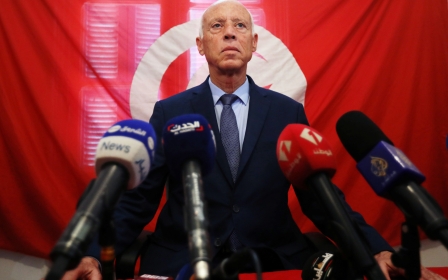Karoui's detention may tarnish credibility of Tunisia election, says interim president
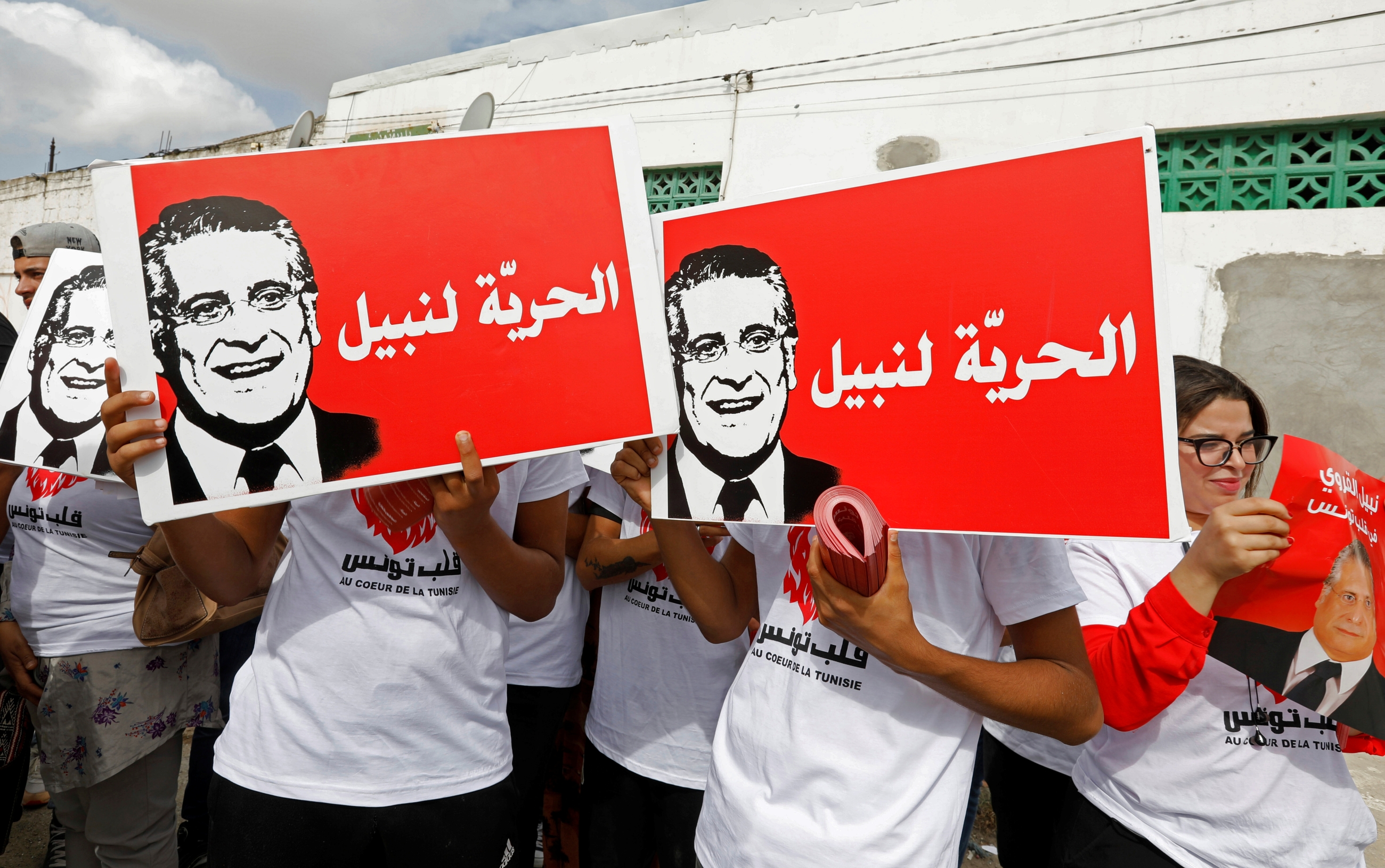
The ongoing detention of Tunisian presidential candidate Nabil Karoui may tarnish the credibility of the forthcoming election, acting president Mohamed Ennaceur said, calling for an "honourable solution" to the issue.
"The situation, as it is, has repercussions on the credibility of the elections and the credibility of the democratic process and the credibility of Tunisia, as well as Tunisia's image in the world," Ennaceur said in a televised speech on Friday.
Karoui, a businessman and media mogul, has been campaigning from behind bars as he faces money-laundering charges. Despite his imprisonment, last month he beat dozens of candidates, including political veterans, to qualify for the final round of voting.
He is poised to remain in jail for the general elections on 13 October, when he will be competing with law professor Kais Saeid for the North African country's presidency.
New MEE newsletter: Jerusalem Dispatch
Sign up to get the latest insights and analysis on Israel-Palestine, alongside Turkey Unpacked and other MEE newsletters
Last week, an appeals court rejected a request to release Karoui, raising the prospect that he may win the election from a jail cell.
"One of the two candidates who won the first round is in prison and does not have the freedom to campaign or speak to his voters," Ennaceur said on Friday, as reported by Reuters news agency.
"We will continue to ask all officials to find an honourable solution that respects the judiciary to overcome the unusual and strange situation."
The affair marks uncharted territory for Tunisia, which toppled longtime autocrat Zine El Abidine Ben Ali in a popular uprising in 2011.
Legal scholars are not in agreement on whether Karoui would gain presidential immunity if he wins the elections or if he would even be able to attend his own swearing-in ceremony.
The first round of elections in September produced an unlikely outcome with the victory of Saeid and Karoui, two political outsiders.
The presidential race, which is the second since Ben Ali was toppled, was originally scheduled for late in 2019, but was brought forward by the death of 92-year-old president Beji Caid Essebsi in July.
Middle East Eye delivers independent and unrivalled coverage and analysis of the Middle East, North Africa and beyond. To learn more about republishing this content and the associated fees, please fill out this form. More about MEE can be found here.


